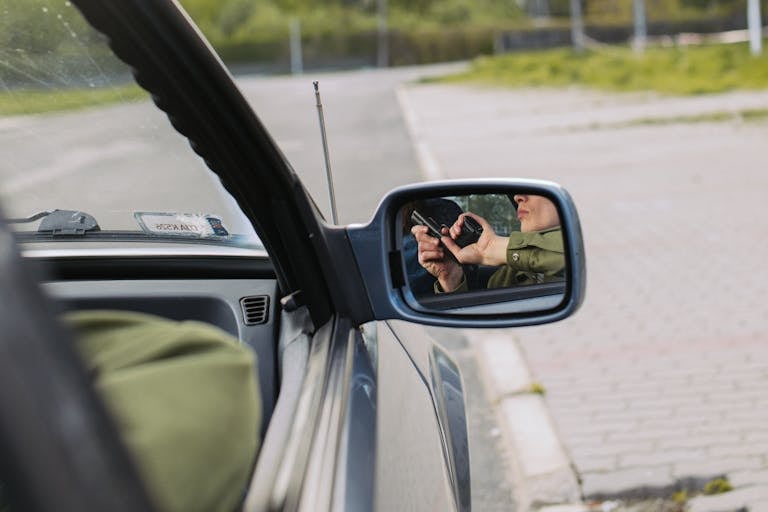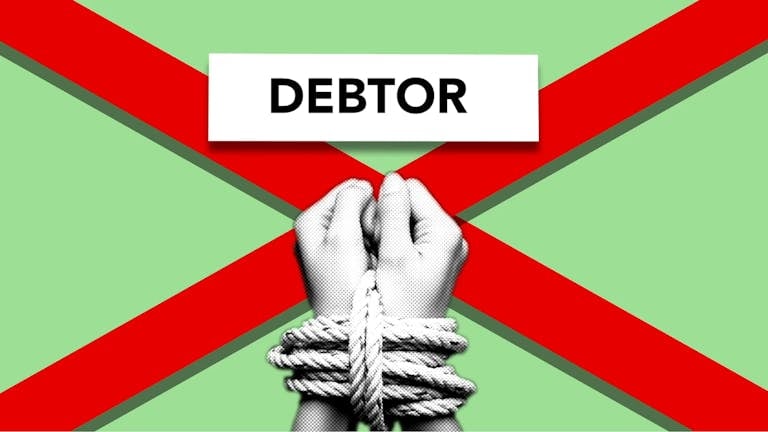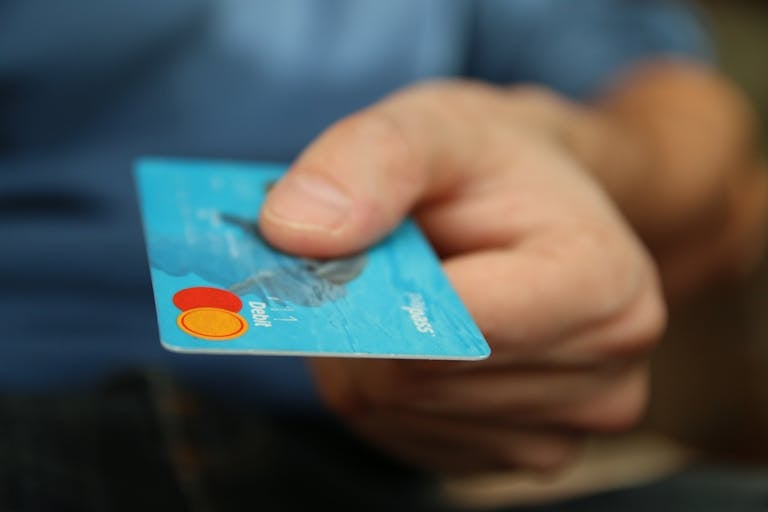What is a Plea Agreement? A No-Nonsense Guide
Understand plea agreements in plain English. Learn how plea deals work, what prosecutors don’t tell you, and make informed decisions about your case with this comprehensive guide.
Introduction
Ever wonder why TV shows about courtroom drama always end in dramatic trials, yet in real life, most cases never see a jury? Welcome to the world of plea agreements – the less glamorous but far more common way criminal cases actually end.
In fact, here’s a shocking truth: over 97% of federal criminal cases are resolved through plea deals, not dramatic courtroom showdowns. I have to admit, I don’t hate a good plea deal, seeing as how I accepted one, and it ended up saving me a lot of time, money, and bullshit.
Plea Agreement Statistics Box (2024-2025)
📊 By the Numbers
- 97.4% of federal criminal cases end in plea agreements
- 94% of state criminal cases resolve through pleas
- Average sentence reduction: 35-50% with plea deals
- 73% of defendants accept first or second plea offer
- 89% of cases are resolved within 6 months via pleas
⚖️ Time & Money Impact
- Average trial costs: $50,000-$150,000
- Average plea costs: $5,000-$15,000
- Trial timeline: 6-18 months
- Plea timeline: 1-6 months
- 85% reduction in legal fees with pleas
🎯 Success Rates
- 82% satisfaction rate with plea outcomes
- 15% attempt to withdraw pleas later
- 2% success rate in plea withdrawal
- 91% prosecutor success rate in trials
- 45% defendant success rate in trials
Understanding How Plea Deals Work
The modern criminal justice system would collapse without plea agreements. Think of plea deals as a negotiated settlement in a criminal case – similar to settling a civil lawsuit, but with your freedom potentially on the line. Unlike the dramatic “all or nothing” scenarios you see on TV, plea deals represent a middle ground where both sides compromise to avoid the uncertainty of trial.
A plea agreement typically involves three core elements:
- The specific charges you’ll plead to
- The sentence or sentencing recommendations
- What you and the prosecution each give up
Types of Plea Agreements: Which One Is Right for Your Case?
The journey from receiving a plea offer to accepting a final agreement is rarely as straightforward as TV shows would have you believe. Think of it more like a complex negotiation dance between the prosecution and defense, with each side testing the other’s resolve and limits.
This process can take anywhere from a few days to several months, depending on case complexity and court schedules. Understanding each step is crucial because mistakes or oversights during this process can have lasting consequences.
Most defendants are surprised to learn that the first offer is rarely the best one, and that timing and strategy play crucial roles in securing a favorable deal.
1. Charge Bargaining
- Most common type
- Pleading to lesser charges
- Example: Felony assault reduced to misdemeanor
2. Count Bargaining
- Pleading to fewer charges
- Dropping multiple counts
- Example: Three drug charges reduced to one
3. Sentence Bargaining
- Agreeing to specific sentence
- Prosecutor recommends leniency
- Example: Guaranteeing probation instead of jail
4. Fact Bargaining
- Agreeing to certain facts
- Avoiding damaging details
- Example: Omitting aggravating circumstances
What Happens in a Plea Agreement?
The actual mechanics of a plea agreement involve much more than just saying “guilty” in court. Think of it as buying a house – there’s the offer, inspection, paperwork, and finally closing – except here, your freedom might be on the line.
Most defendants are shocked to discover the multiple steps and requirements involved, from detailed court questioning to specific formalities that must be followed. This isn’t a process you can rush through or take lightly – in fact, judges are legally required to ensure you understand every single consequence of your plea.
Let’s break down exactly what happens when you decide to take a plea deal, from the moment you sign until the final bang of the judge’s gavel.
The Plea Hearing
- Judge confirms understanding
- Rights explanation
- Factual basis established
The Consequences
- Criminal record implications
- Sentencing parameters
- Collateral effects
The Benefits
- Reduced charges/sentence
- Quicker resolution
- Cost savings

What Prosecutors Don’t Tell You
Let’s pull back the curtain on what really happens behind those closed prosecutor’s office doors. While prosecutors are bound by ethical duties, there’s a lot of strategic information they’re not required to share – and won’t.
Think of it as a poker game where they hold their cards close to the chest, but I’m about to show you what’s in their hand. From overloaded court calendars to evidence problems, here are the insider secrets that could give you leverage in your plea negotiations.
Critical Information Prosecutors Keep Quiet:
- Resource Limitations
- Overwhelming caseloads mean they can’t try every case
- Lab backlogs can delay crucial evidence testing
- Witness cooperation isn’t guaranteed
- Example: One prosecutor juggling 150+ active cases
- Evidence Weaknesses
- Chain of custody issues
- Witness credibility problems
- Missing surveillance footage
- Technical errors in searches or seizures
- Internal Pressures
- Case clearance rate requirements
- Supervisor pressure to resolve cases
- Election year considerations
- Department policy changes
- Hidden Bargaining Chips
- Flexibility in charging decisions
- Sentencing recommendation power
- Ability to influence probation terms
- Control over future prosecution
Strategic Timing Secrets
- Monday mornings and Friday afternoons often yield better deals
- Pre-preliminary hearing offers might be more generous
- End-of-month quotas can work in your favor
- Trial stack pressures create negotiation opportunities
The “Standard Offer” Myth
- No such thing as truly standard offers
- Similar cases often get different deals
- Individual prosecutor discretion varies widely
- Office policies change frequently
This inside knowledge is particularly valuable because:
- It helps level the playing field
- Reveals potential negotiation leverage
- Exposes timing opportunities
- Highlights pressure points
First Offers Are Usually Inflated
- Start high for negotiation room
- Testing defense resolve
- Standard practice inflation
Evidence Strength Matters
- Weak cases = better deals
- Strong cases = tougher terms
- Proof problems = leverage
Timing Is Critical
- Early pleas get best deals
- Eve of trial = limited options
- Calendar pressure exists
Hidden Consequences
- Immigration impacts
- Professional licensing
- Future case implications
Real Prosecutor Quotes and Admissions
“By Wednesday afternoon, I’m looking at my trial calendar for next week and thinking about which cases I really want to try – and which ones I can resolve with a reasonable plea offer.”
- Former Assistant District Attorney, New York
“Everyone thinks we have unlimited resources. The reality is, I’m juggling 180 active cases. If a defense attorney is prepared and catches issues early, they’re likely to get a better deal than if they wait until we’ve invested significant prep time.”
- Current State Prosecutor, Florida
“The worst-kept secret in criminal law is that we often overcharge initially. It gives us room to negotiate down to what we actually think is fair. It’s just part of the process.”
- Former Federal Prosecutor
“Some of my colleagues hate Friday afternoon pleas, but I find defendants are most realistic about their cases when trial is looming on Monday morning.”
- Senior District Attorney, California
“If defense counsel comes to me with a well-prepared mitigation packet early in the case, I’m much more likely to consider a favorable plea. Once we’ve spent resources preparing for trial, those better offers are off the table.”
- Assistant U.S. Attorney
“The dirty little secret? We’re often just as worried about our problematic witnesses and evidence issues as the defense is. A prepared defense attorney who spots these issues early has significant leverage.”
- Former State Prosecutor, Texas
The Truth About Plea Agreements: Facts vs. Hollywood Myths
Let’s bust some common misconceptions:
MYTH: “Only guilty people take pleas”
REALITY: Innocent people often plead guilty to avoid severe penalties
MYTH: “You can easily withdraw a plea later”
REALITY: Plea withdrawals are extremely rare and difficult
MYTH: “Prosecutors always have solid evidence”
REALITY: Many cases have significant weaknesses
MYTH: “Trials are better than pleas”
REALITY: Trials are risky, expensive, and often result in harsher sentences

Should You Take a Plea Agreement? Understanding Your Options
This might be the most important decision of your life, and unlike what you see on TV, you won’t have a dramatic soundtrack helping you decide. The choice between accepting a plea deal or fighting your charges can impact everything from where you’ll sleep tonight to what job you can get a decade from now.
Let’s break down this crucial decision with the detail it deserves.
Real-World Decision Points
- Evidence Assessment
- Prosecution’s case strength
- Your side of the story
- Witness reliability and availability
- Physical evidence quality
- Constitutional issues (search/seizure/statements)
- Risk Analysis: Numbers Don’t Lie
- Trial conviction rate: 85% federal, 73% state
- Average sentence if convicted at trial: 3x plea offer
- Cost of trial defense: $25,000-$100,000+
- Average trial preparation time: 6-18 months
- Appeal success rate: Less than 5%
- Personal Impact Evaluation
- Immediate consequences:
- Jail/prison time differences
- Financial penalties
- Release conditions
- Long-term effects:
- Employment prospects
- Housing options
- Professional licenses
- Immigration status
- Voting rights
- Firearm possession
- Family considerations:
- Child custody impact
- Family separation length
- Financial stability
- Support system availability
- Immediate consequences:
Critical Questions to Ask Yourself
- Case Strength Questions
- Do witnesses have credibility issues?
- Are there constitutional violations?
- Can evidence be suppressed?
- Are there alibi possibilities?
- Do co-defendants pose risks?
- Life Impact Questions
- Can you afford a full trial?
- How long can you fight?
- What’s your tolerance for uncertainty?
- How would worst-case scenario affect you?
- Are collateral consequences manageable?
Red Flags That Should Give You Pause
- Pressure Tactics
- “One-day only” offers
- “Take it or leave it” ultimatums
- Threats of maximum sentences
- Rushing without discovery
- Pressuring without lawyer consultation
- Deal Problems
- Unclear terms
- Hidden consequences
- Unrealistic promises
- Missing key provisions
- Vague language
Success Factor Analysis
Ask yourself these key questions:
- Is the evidence against you strong?
- Do you have viable defenses?
- Can you afford a full trial?
- Are witnesses reliable?
- Is the plea offer reasonable?
- Are collateral consequences acceptable?
- Do you understand all terms?
- Have you discussed it with family?
Strategic Timing Considerations
- Early Pleas Advantages:
- Best offers typically available
- Minimal prosecution investment
- Quick resolution
- Lower defense costs
- Less time to evaluate evidence
- Might miss weaknesses in case
- Limited negotiating leverage
- Later Pleas Advantages:
- More time to evaluate evidence
- Better understanding of case strength
- Maximum negotiating leverage
- Offers may worsen
- Higher defense costs
- Longer uncertainty period
Making a Smart Decision in Your Criminal Case
The decision to accept or reject a plea deal isn’t just about guilt or innocence – it’s about making a calculated choice that best serves your future. Imagine standing at a fork in the road where one path is shorter but certain, while the other is longer with unknown dangers – and you can’t turn back once you choose.
While your lawyer can advise you, the final decision rests squarely on your shoulders. Even seasoned criminal defense attorneys admit that evaluating plea deals is more art than science, requiring a delicate balance of legal analysis, risk assessment, and personal circumstances.
Let’s break down the critical elements that should inform your decision, beyond just the basic questions of guilt or evidence.
Essential Steps
- Review all evidence thoroughly
- Understand maximum penalties
- Consider collateral consequences
- Evaluate defense strength
- Calculate cost differences
Red Flags
- Pressure to decide quickly
- Unclear terms
- Hidden consequences
- Unrealistic promises
Real-World Plea Agreement Success Stories (2024 Cases)
Drug-Related Cases
Example 1: College Student Drug Distribution
Location: California Original Charges:
- Felony possession with intent to distribute (cocaine)
- Mandatory minimum: 10 years
- $100,000 maximum fine
Case Details:
- First-time offender
- College senior caught selling to undercover officer
- Small quantity but within school zone (aggravating factor)
- Strong evidence including recorded sale
Plea Agreement Outcome:
- Reduced to simple possession
- 18 months probation
- Drug counseling program
- Record eligible for sealing after completion
- No jail time served
Why It Worked: Early intervention, strong character references, academic standing, and immediate enrollment in treatment program before court date.
Violent Crime Cases
Example 2: Bar Fight Assault
Location: Texas Original Charges:
- Aggravated assault (2nd degree felony)
- Potential 20-year sentence
- Weapon enhancement
Case Details:
- Surveillance footage unclear
- Self-defense claim possible
- Multiple conflicting witness statements
- No prior criminal record
Plea Agreement Outcome:
- Reduced to misdemeanor assault
- 12 months probation
- Anger management classes
- $2,000 restitution
- No felony record
Why It Worked: Evidence issues, witness credibility problems, and defendant’s immediate enrollment in anger management.
White Collar Cases
Example 3: Corporate Embezzlement
Location: New York Original Charges:
- Grand larceny (1st degree)
- 25 years maximum
- Multiple counts of fraud
Case Details:
- $200,000 alleged theft
- Complex paper trail
- Partial restitution available
- Cooperation with investigation
Plea Agreement Outcome:
- Single count of petit larceny
- 5 years probation
- Full restitution agreement
- No prison time
- Professional license retained
Why It Worked: Full cooperation, immediate partial restitution, and complex evidence issues that would have made trial costly.
DUI Cases
Example 4: Multiple DUI Offender
Location: Florida Original Charges:
- 3rd DUI within 10 years (felony)
- Mandatory 30 days jail
- License revocation for 10 years
Case Details:
- Blood alcohol borderline
- Question about stop legality
- Strong ties to community
- Business owner
Plea Agreement Outcome:
- Reduced to 2nd DUI
- Intensive outpatient treatment
- 2-year license suspension
- Ignition interlock device
- No mandatory jail time
Why It Worked: Procedural issues with stop, strong defense attorney, and comprehensive treatment plan presentation.
Domestic Violence
Example 5: Domestic Violence Charge
Location: Washington Original Charges:
- Felony domestic violence
- 5 years maximum
- No contact orders
- Firearm rights revocation
Case Details:
- Mutual combat situation
- No serious injuries
- No prior history
- Employment at risk
Plea Agreement Outcome:
- Reduced to disorderly conduct
- Anger management classes
- 12 months probation
- Maintained employment
- No firearms restriction
Why It Worked: Evidence of mutual combat, immediate counseling enrollment, and employment considerations.
Federal Cases
Example 6: Wire Fraud Conspiracy
Location: Federal Court Original Charges:
- Wire fraud conspiracy
- 20 years maximum
- $250,000 fine
- Multiple counts
Case Details:
- Minor role in larger scheme
- First-time offender
- Minimal financial gain
- Early cooperation
Plea Agreement Outcome:
- Single count plea
- Home confinement
- 3 years probation
- Minimal restitution
- No prison time
Why It Worked: Early cooperation, minor role evidence, and complete acceptance of responsibility.
Key Takeaways from These Examples
Common Success Factors:
- Early intervention and cooperation
- Proactive rehabilitation steps
- Strong defense strategy
- Evidence issues in prosecution’s case
- Restitution availability
- Clean prior record
- Community ties and employment
Best Practices Demonstrated:
- Immediate action post-arrest
- Enrollment in treatment/counseling
- Restitution arrangements
- Character reference collection
- Evidence preservation
- Cooperation with investigation
- Professional representation
Red Flags Avoided:
- Additional charges while pending
- Social media posts about case
- Violation of release conditions
- Contact with victims/witnesses
- Delayed cooperation
- Incomplete disclosures
Frequently Asked Questions About Plea Agreements
Let’s tackle the most common questions people ask when facing a plea decision – and trust me, these aren’t just hypothetical scenarios. These questions come from real defendants facing real decisions, just like you might be right now.
- Can I change my mind after accepting a plea deal?
- Generally no, plea agreements are nearly permanent
- Must show serious legal errors or rights violations
- Success rate for withdrawal under 2%
- Time limits apply (usually 30 days)
- Example: Recent case where defendant tried to withdraw due to new evidence – denied
- Will I have a criminal record?
- Yes, unless specifically negotiated otherwise
- Differs between felony and misdemeanor pleas
- Some charges may be eligible for future expungement
- Shows up on background checks
- Can affect employment, housing, education opportunities
- How long do I have to decide?
- Varies by jurisdiction and prosecutor
- Some offers have expiration dates
- Better deals often come early
- Trial date affects timeline
- Pressure to decide quickly often means review needed
- Can I negotiate myself?
- Strongly discouraged
- Prosecutors cannot legally advise you
- Risk of self-incrimination
- Missing crucial legal protections
- Could harm future plea possibilities
- What happens if I reject the plea deal?
- Case proceeds toward trial
- Original charges remain
- May face maximum penalties
- Future deals might be less favorable
- Trial preparation begins
- Will my plea affect my immigration status?
- Often yes, significantly
- Some pleas trigger automatic deportation
- Others affect citizenship applications
- Immigration counsel review recommended
- Special plea provisions might be needed
- Can I still appeal after pleading guilty?
- Very limited appeal rights
- Must usually waive most appeal rights
- Constitutional violations might still apply
- Ineffective counsel claims possible
- Success rate extremely low
- What about probation instead of jail?
- Depends on charge severity
- First-time offender advantages
- Must meet eligibility requirements
- Violations mean possible jail time
- Conditions can be demanding
- How does a plea affect my gun rights?
- Many pleas restrict firearm possession
- Federal law may permanently ban ownership
- State restrictions vary widely
- Some rights might be restorable
- Professional impacts for security/law enforcement
- Will I have to testify against others?
- Depends on plea agreement terms
- Cooperation agreements are separate
- Protection concerns possible
- May affect sentence reduction
- Truth requirement absolute
- What about future job applications?
- Must typically disclose conviction
- Some employers more forgiving of pleas
- Industry-specific restrictions apply
- Professional licensing impacts
- Background check appearances
- Can I get a plea deal later if I reject this one?
- Possible but usually less favorable
- Prosecutor resources already invested
- Trial preparation costs factor in
- Time pressures may affect offers
- Case strength changes matter
Conclusion
Plea agreements represent a practical resolution to criminal charges, offering certainty and efficiency at the cost of giving up your trial rights. While they’re not perfect, understanding how they work helps you make an informed decision about your case.
Need Professional Help?
Navigating plea agreements requires experienced legal guidance. Good counsel can help you understand your options and negotiate the best possible outcome:
Services include:
- Free case evaluation
- Plea negotiation expertise
- Evidence review
- Strategic advice
- Court representation
- Post-plea guidance
Don’t navigate this complex process alone. Contact a legal team today for a confidential consultation about your case.







